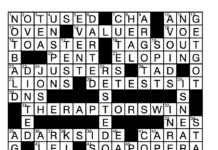The University of Waterloo played host to Talk Science, an event for Science Literacy Week, held Sept. 25. The event was hosted by Evidence for Democracy, an organization that focuses on promoting evidence-based decision-making in government. </p>
The event began with a showing of Silence of the Labs, a documentary put together by CBC’s The Fifth Estate. The documentary focuses on federal cutbacks to research programs and the government’s institution of a media protocol requiring all interviews with federal scientists to be approved by officials.
In addition to the documentary, the event included a panel of professors speaking on scientific funding and communication in Canada and the world. The panel was made up of professors David DeVidi and Paul Thagard of the department of philosophy, and associate professor John McLevey of the department of knowledge integration.
The event concluded with a panel made up of candidates for the riding of Waterloo. In attendance were the candidate for the Liberal party, Bardish Chagger, NDP candidate Diane Freeman, and Green Party candidate Richard Walsh.
In her opening statement, Chagger spoke of the need to return to evidence-based decision-making. “It is becoming more apparent that we need to return to a model where research drives industry, instead of the current Conservative government’s model where industry drives research,” said Chagger. “We must return to evidence-based decision-making and not be blinded by ideology when planning for our community’s and nation’s future.” She also noted that the parties represented on the panel were likely to agree that decision-making in government should be evidence-driven.
Freeman, in her opening speech, spoke of her motivation to run: “I wanted to run because we need evidence-based decision-making.” She also spoke of her background as a student in engineering at UW.
Walsh in his opening statement echoed the previous statement on the importance of evidence-based decision-making. He also spoke of Elizabeth May’s Open Science private members bill, which aimed to ensure public access to publicly funded scientific research.
The candidates were asked specifically what their parties would do to restore evidence-based decision- making. Chagger outlined two actions that the Liberal party would take: allowing scientist to speak freely and ensuring open data for government scientific data. Freeman spoke of the NDP’s commitment to bring back the long-form census as well as releasing scientific data to the public. Walsh added that the Green Party would reintroduce the Open Science bill.
While most of the discussion was on the topic of evidence-based decision-making, the candidates were also asked about bill C-51. Walsh highlighted that his party was the first to come out against it, Freeman repeated her party’s commitment to repeal the bill, and Chagger noted that it was a nuanced situation and that the Liberals had worked to make changes to the bill and were promising further changes if elected.
The absence of the current MP for Waterloo and Conservative candidate Peter Braid was also noted on several occasions by the panelists.
Justin Singer, a knowledge integration student and the organizer of the event, was pleased with the event and believes that discussions on science and government are important. “I believe that the rule of reason is definitely possible and necessary under a democratic system,” said Singer. “By having the public scientifically engaged, they can be properly engaged in government.”
Imprint contacted the Braid campaign, but was unable to get a comment by press time.





























